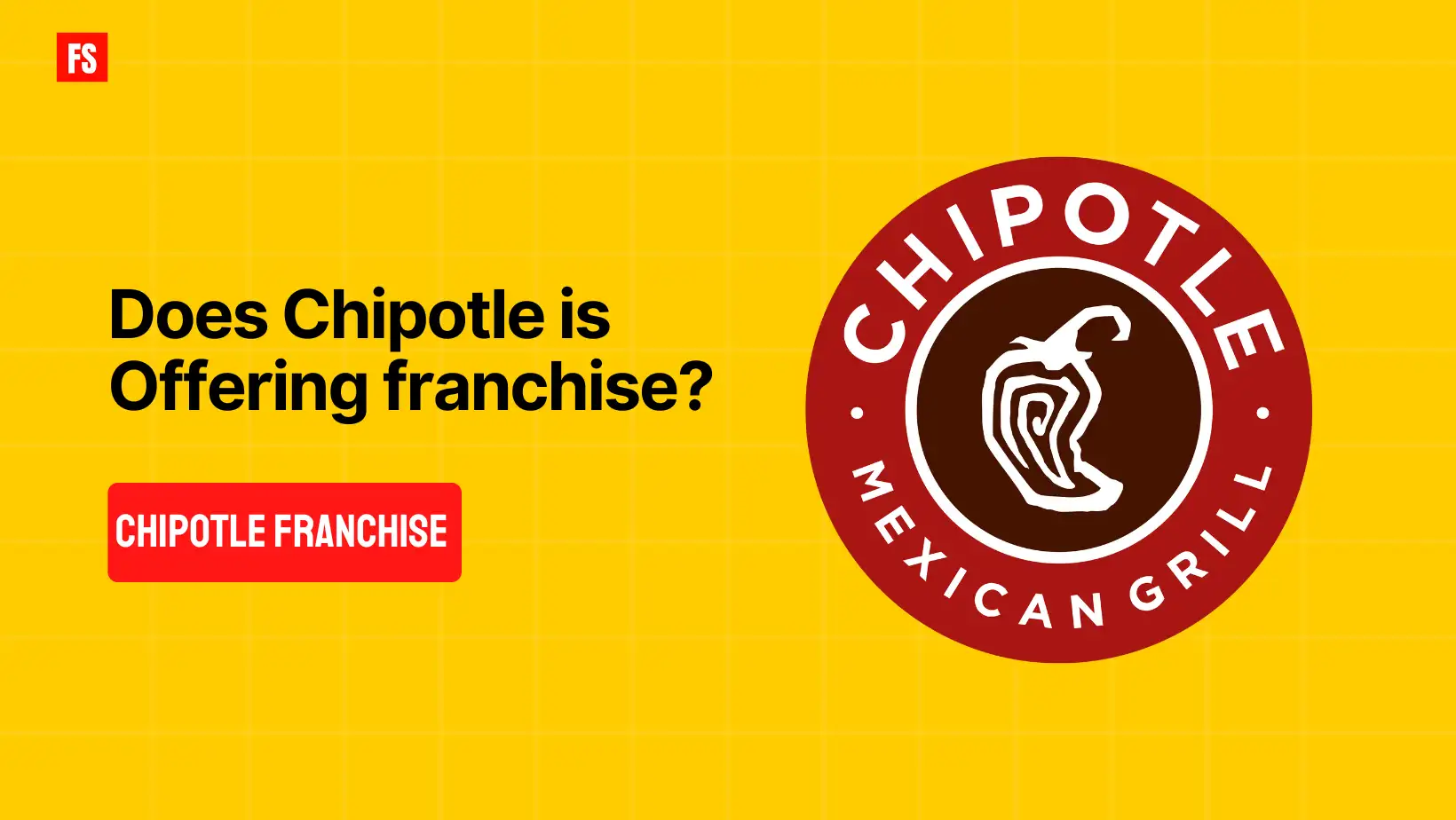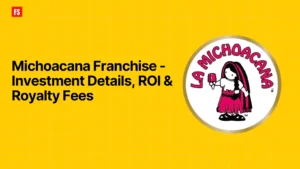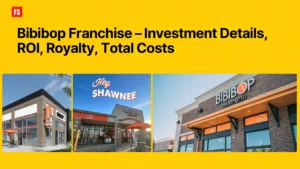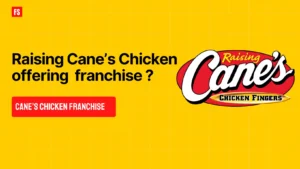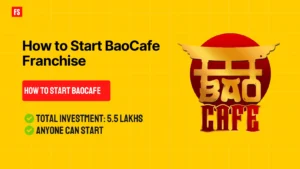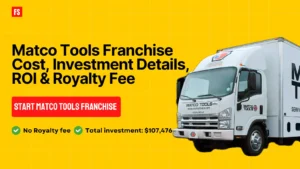Are you interested in buying a franchise and trying to determine which may provide you with the best of both worlds name recognition and quality as well as profitability? While many entrepreneurs dream of owning a Chipotle franchise, it’s worth nothing that Chipotle Mexican Grill doesn’t offer traditional franchise opportunities. However, its fast-casual dining model, flexibility of menu and commitment towards quality have triggered many similar concepts in the industry. In this guide, there is more detail about Chipotle’s operations focusing on other prominent franchises that offer the insights regarding the type of products, investment and profit on the page.
Let’s breakdown together;
Brand Details
Brand Name: Chipotle Mexican Grill
Founder: Steve Ells
Founded Year: 1993
Total Outlets: Over 3,300 locations worldwide
Industry: Fast-Casual Dining
Headquarters: Newport Beach, California, USA
The Journey of Chipotle Mexican Grill
Chipotle Mexican Grill , commonly known as Chipotle is an American operated multinational fast casual restaurants chain. Chipotle Mexican Grill was established by Steve Ells in 1993 and is located in Denver, Colorado, as a startup plan to finance Ells next dream; a fine dining restaurant. Chipotle is a name that originated from Nahuatl / Mexican that means smoked and dried jalapeno chilli. The first site proved to be rather successful; it sold more than one thousand burritos every day within a month of operation.
McDonalds entered the company in 1998 through purchasing a minority stake in the company. McDonalds by 2001 had become the biggest investor in Chipotle. McDonald’s funding made it possible for the firm to grow very fast from only 16 fast food restaurants in 1998 to more than 500 in 2005. McDonalds dissociated completely from Chipotle in 2006. Today, Chipotle has a chain of more than 2900 restaurants in the United States, Canada , United Kingdom, France and Germany. With the use of digital ordering and delivery services Chipotle makes progress in its fast-casual restaurant model with a focus on multiple loyalty programs.
Why doesn’t Chipotle offer franchises?
The primary reason why Chipotle doesn’t offer franchise is that the company does not have to. The firm has enough cash flow for expansion, but it still holds a more conservative approach towards organization and food procurement, which can be an issue for franchising. The company has a strategy of quality and standard provision with Believe, that may be eroded by having franchisees. Also, they seek to maintain their food culture without outside operators putting pressures on them on cost and other practices.
Also Read this: Happy Lemon Franchise – How to Start, Investment details, Royalty fee, ROI
Exploring Chipotle’s Flavorful Menu
Chipotle’s menu features a variety of customizable Mexican-inspired dishes, including burritos, bowls, tacos, and salads, all made with fresh, responsibly sourced ingredients and bold flavors.
| Entrees | Lifestyle Bowls | Sides | Kid’s menu | Drinks |
| Burrito Bowl | High Protein Bowl | Chips & Guacamole | Kids Quesadilla | Soft Drinks |
| Quesadilla | Grain Freedom Bowl | Chips & Fresh Tomato Salsa | Kid’s Tacos | Organic Teas |
| Salad | Wholesome Bowl | Chips & Roasted Chili-Corn Salsa | Kids Build Your Own | Lemonade & Aguas Frescas |
| Tacos | Balanced Macros Bowl | Side Of Queso Blanco | Sparkling Water |
Some alternative options for Chipotle franchise
These franchises offer opportunities in the fast-casual or Mexican cuisine segment, with varying investment and operational models. Each has its own unique appeal and market position. These are the alternative options for Chipotle franchise.
I.Qdoba Mexican Eats
Founded In: 1995
Total Investment: $489,200 to $1,307,000
Franchise Fee: Approximately $30,000
Area Required: 400 to 1,200 sq. ft.
Royalty Fee: 5% of gross sales
Qdoba Mexican Eats is fast casual restaurant company operating in United States and Canada offering Mexican inspired food products. Qdoba Mexican Eats was established in 1995 by Anthony Miller and Robert Hauser in Denver Colorado Operating as Zuma Fresh Mexican Grill. Because of trademark problems, the name changed to Z-Teca to the current Qdoba Mexican Grill in the year 1999. Because of its flexible menu service and speciality in fresh products Qdoba expanded greatly, in 2003 it was acquired by Jack in the Box Inc. Currently Qdoba has outlets in more than 700 outlets in the United States and Canada and is noted for its quality, innovative and personalized services.
As franchisees, Qdoba relish in the benefits of well established brand image, successful business formula and versatile product offering that can be suited to different client base. This makes the franchise a competent and trustworthy means of turning the thought into a reality by providing all the necessary training, marketing and operational assistance.
Also Read this: Parlor Doughnuts Franchise – Investment Costs, Fees, Profit, ROI
II. Costa Vida
Founded In: 2003
Total Investment: $659,500 – $1,025,000
Franchise Fee: $30,000
Area Required: Approximately 3,000 sq. ft.
Royalty Fee: 6% of gross sales
Costa Vida Mexican Grill is a theme-based food chain outlet established on the principles of Mexican theme cuisine. It was started in 2003 by JD and Sarah Gardner in Layton, Utah, offering the New Coastal food specialty that carries great facets in regard to customer satisfaction. Operating in leased outlets also facilitated Costa Vida shift to franchising, thereby multiplying the string across United States and Canada. At present, Costa Vida has more than 100 stores across the globe and is still expanding; however, the company keeps on giving excellent taste and fresh concept food with the touch of the coast. Currently, Costa Vida is established for growth with the goal of serving its guests exceptional experiences.
Reasons why a Costa Vida franchise is attractive include: The first advantage of pursuing a Costa Vida franchise is that brand recognition is already established. Exploding Mexican food, which offers a line of meals having a modern Mexico beach side theme, has created an identity and clientele for itself and the franchisor. The operation of the stores is advantageous to the franchisees through comprehensive training in that they gain sufficient skills in managing their locations. Besides, the franchise offers standard operating procedures and assistance in choosing a location and developing a store essentials for creating good outlets.
Also Read this: How to start Steak n Shake Franchise – Investment Details 2024
III. Fuzzy’s Taco Shop
Founded In: 2003
Total Investment: $642,000 – $1,523,500
Franchise Fee: $40,000
Area Required: Approximately 2,500 – 3,500 sq. ft.
Royalty Fee: 5% of gross sales
The company was established in 2003 and is located on Berry Street in Fort Worth, Texas; it is being owned by Paul and Tami McCarty. Over the years Fuzzy’s has expanded greatly to be one of the most recognized and loved names in the Mexican food business, characterized by its franchise-style and great quality Baja-style tacos. Breakfast food, beer, margaritas, and ‘some of our vegetarian choices’ are the things that define Fuzzy’s. The concept of Thirty minutes or less dining and the quality of the ingredients has helped the company grow rapidly, placing the company’s outlets total more than five hundred throughout America. Interestingly, Fuzzy’s objectives are to provide a relaxed atmosphere for families, college students and groups.
The opportunity to have Fuzzy’s Taco Shop franchise is a great advantage for potential franchisees because of the following benefits. A franchisee is extremely well trained and supported throughout the working process, so they do not need any special skills. The forms of appeals for Fuzzy are also generic attracting a wide swath of customers that increases its margins. Also, the fast-casual Mexican dining segment remains under expansion, and Fuzzy’s has a location advantage because it can be established in stand-alone structures or shopping malls. The brand detail of quality, flavour and customer relations make the franchisee attractive in the market.
Also Read this: Nike Franchise Cost – Investment Details, Profit, ROI – 2024
Conclusion
Although Chipotle Mexican Grill is considered the leading fast-casual restaurant chain to date, its refusal to franchise still gives the spotlight to other brands in the same genre. Companies such as Qdoba Mexican Grill, Costa Vida Fresh Mexican Grill, Fuzzy’s Taco Shop set you a platform where you can invest into successful outlets that will meet growing market demand for tasty, quality and customizable products. For the first timers, these franchises offer attractive business propositions with branding, training, and easily iterable business strategies. If you are motivated to start a Chipotle like business, then these may be the next steps you take to owning a successful franchise business.
PS: Please help me improve my content, share your feedback by clicking any of the emojis below 👇
FAQ’S –
No, Chipotle Mexican Grill operates solely through company-owned stores to maintain quality and consistency.
The growing demand for fresh, customizable meals and the popularity of Mexican cuisine make this segment highly profitable.
Alternatives include Qdoba Mexican Eats, Costa Vida, and Fuzzy’s Taco Shop, all offering Mexican-inspired fast-casual dining experiences.
The total investment for a Qdoba franchise ranges from $489,200 to $1,307,000.
Costa Vida offers a unique coastal-Mexican theme, comprehensive training, and established brand recognition, making it a great investment.
Fuzzy’s is known for its Baja-style tacos, relaxed atmosphere, and versatility in location setups, from standalone outlets to malls.
ROI varies, but most franchises like Qdoba, Costa Vida, and Fuzzy’s Taco Shop typically offer a 3-5 year return, depending on location and management.
Most franchises provide comprehensive training, marketing assistance, and operational support to ensure franchisee success.
Royalty fees are generally around 5% of gross sales for Qdoba and Fuzzy’s Taco Shop, while Costa Vida charges 6%.
While no franchise can guarantee success, these alternatives have proven business models and support systems that can help replicate the profitability and popularity associated with Chipotle Mexican Grill.

